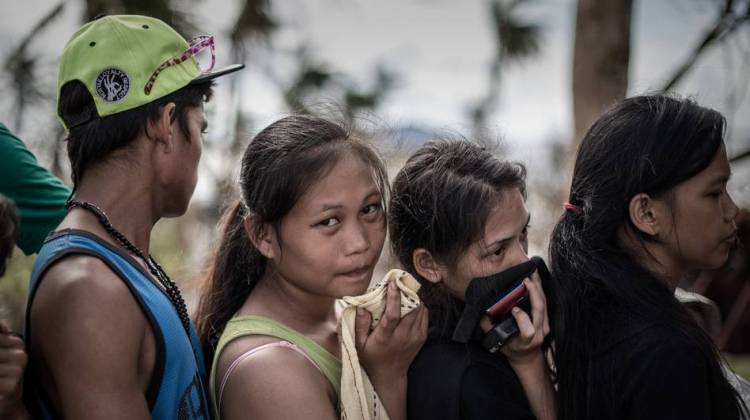The 220,000 residents of Tacloban — and millions more across central and southern Philippines — were hunkered down one week ago as Typhoon Haiyan bore down on them.
A week later, "the mood here is very desperate," NPR's Anthony Kuhn said Thursday as he reported from Tacloban for Morning Edition.
Although aid is arriving at the city's airport and although the Philippine military, the U.S. military, international aid groups and others are on the scene to help, "most of the citizens [in Tacloban] have not received any aid and that's after a week of going without food, shelter, water" and other necessities, Anthony said.
There's still a "huge lack of logistics support and manpower," he added — not enough trucks, not enough gas and not enough personnel to get the aid to where it's needed.
Along with the lack of aid, there's this grim news: Many of the 2,000 or so people who authorities believe died in Tacloban have yet to be buried. Anthony said that on his way into the city from the airport "I saw a lot of body bags lined up" on the streets. Only a couple hundred people had been buried by Thursday evening (local time). Few of them had been identified.
The "very unpleasant smell of dead bodies" lingers in the air around Tacloban's City Hall, Anthony said.
As day turned to evening Thursday in the Philippines:
- The number of confirmed deaths, according to government officials, stood at 2,357.
- The USS George Washington, an aircraft carrier, and seven more U.S. Navy ships had arrived to help.
- Reports from other cities also were sobering. "While relief efforts for Typhoon Haiyan have been focused on the city of Tacloban, aid groups say other cities in Leyte Province have also suffered vast devastation, with residents facing increasing dangers with the passage of time," The New York Times wrote.
Also Thursday on Morning Edition, in the introduction to a report from NPR's Jason Beaubien, we heard the voice of typhoon survivor Marcelo Maloon Jr., a 23-year-old nursing student. Before Haiyan hit, he went with friends to a hotel in Tacloban. They rode out the storm in a third-floor room.
When Maloon emerged and went back to the rooming house where he had been living, it was mostly destroyed. He could see "dead bodies in the sea and under the debris of the house." Maloon said he's shocked that he's alive and that he now feels as if he's been given a "second life."
Maloon posted some photos of the typhoon's aftermath here.
9(MDEwMDc1MzM3MDEzNDczOTA0MDc1MzViMQ001))
 DONATE
DONATE








 View More Programs
View More Programs

 Support WFYI. We can't do it without you.
Support WFYI. We can't do it without you.